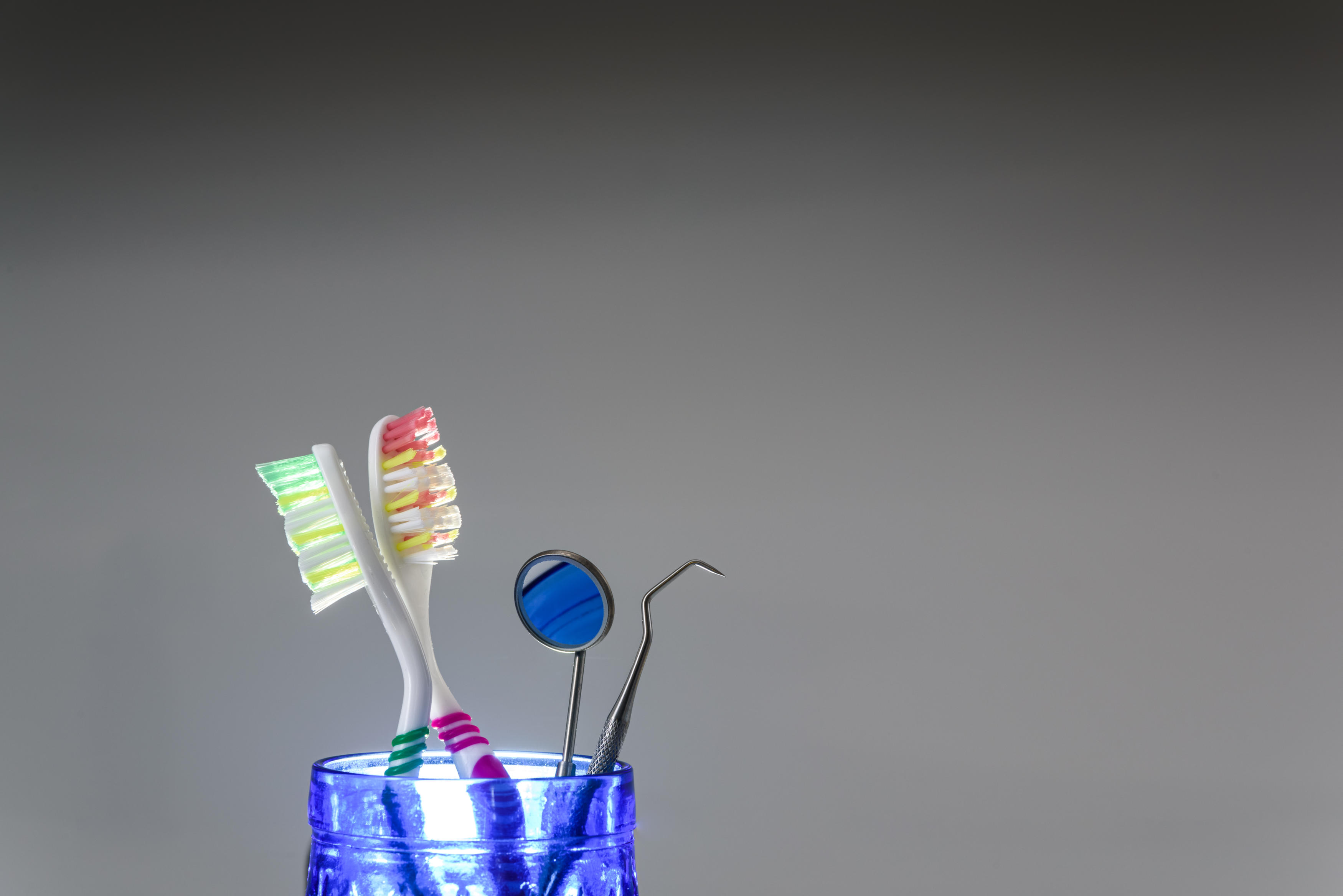
Ultrasonic Denture Cleaner: Pros and Cons
Dental professionals use ultrasonic denture cleaners to help clean dentures more effectively before they deliver them to you. Wouldn’t it be great to be able to clean dentures using the same techniques that professionals use? It is possible. But before you go out and buy an ultrasonic unit, there are some factors that you should consider.
Ultrasonic Denture Cleaner: The Basics
Ultrasonic cleaners are a form of vibrating water bath. The motion of the liquid in its tank is created by a high-frequency transducer that produces microbubbles within the bath’s solution, which disrupt particles formed on the surface of your dentures. The unique part about using one of these devices is that the vibrating solution accomplishes denture cleansing at a microscopic level, removing stains and plaque at their inception.
How to Clean Dentures with Ultrasonic Cleaner
Always rinse your dentures thoroughly under cool running water prior to placing them into the ultrasonic bath of unused cleaning solution. Doing so will prevent the solution from becoming overwhelmed by bacteria and contaminants that decrease the solution’s effectiveness. Run the cleaning bath for one complete cycle, remove the dentures, brush with liquid soap, and rinse with water.
Where to Buy an Ultrasonic Denture Cleaner
Although some drug stores and chain discount stores carry limited supplies of consumer-oriented ultrasonic denture cleaner models, your best bet for finding a wider range of choices is online. Features to consider are the size of the cleaning tank, noise level generated while in use, durability, and waterproof controls that aren’t sensitive to electronic problems.
A quick search of Amazon yields many different brands and price points ranging from $30 to $80.
Ultrasonic Denture Cleaner: Pros
Research presented in the Journal of Applied Oral Science suggests that using an ultrasonic denture cleaner is not a replacement for manual brushing. However, combining multiple cleaning modalities increases the opportunity for more thorough removal of bacteria and debris from your dentures.
Effective Cleaning Method
Using an ultrasonic unit can be particularly beneficial for elderly denture patients or someone who has problems with dexterity and may not be able to adequately clean their dentures with brushing alone. However, brushing remains the best way to remove larger, more visible particles.
Easy to Use
Most in-home ultrasonic denture cleaners typically have timers that allow the device to run for 3 to 6 minutes before shutting off automatically. Running one cycle is generally sufficient to loosen debris and bacterial biofilm enough to effectively brush it away. Using an ultrasonic cleaner means following the recommendations provided by your specific device’s manufacturer for the best results.
Ultrasonic Denture Cleaner: Cons
How to clean dentures with an ultrasonic cleaner is not a set-it-and-forget-it method. There are additional steps to consider if you plan to incorporate an ultrasonic cleaner into your home denture care routine.
Not a Comprehensive Cleaning Method
An ultrasonic bath dislodges debris and microorganisms from your dental appliances at a level where a brush’s bristles have minimal effect, especially if there are pits and cervices in the denture acrylic. Although the use of one of these units acts as an additional aid to denture cleaning, it doesn’t replace the need for the scrubbing action provided by a soft-bristle brush with soap and water.
Expensive
While the $30 to $80 price range may not seem terribly expensive, understand that these units are not of professional quality. They may suffer from moisture and corrosion problems and degrade in efficiency over time, requiring the unit to be replaced regularly. Expect to replace most consumer units every one to two years.
There are durable professional-grade ultrasonic denture cleaners that are available to the public. However, these typically come with a hefty price tag starting at $500 and up, which is not practical for most denture wearers.
Must Be Sanitized
Dirty cleaning solution is a vector for illness. To be effective, the ultrasonic cleaning solution must be discarded, and the bath itself must be thoroughly cleaned and decontaminated after each use. This is especially important to avoid recontamination of your dentures or cross-contamination if you share the device with other denture wearers in your home.
Not as Effective as Professional Cleaning
Home care products, including ultrasonic denture cleaners, work well as an adjunct to help keep your dentures in top condition. However, when plaque and biofilm are not fully removed from dentures every day, tartar will form that cannot be brushed away.
Hard deposits and stains that accumulate on your dental appliances mean it’s time to summon the help of a dental professional who can eliminate tartar buildup, polish, and restore the surface of your dentures so that they are more easily cleaned in the future.
European Denture Cleaner: Top Denture Maintenance
Do you have dentures that still fit comfortably but have lost their luster? Depending on their condition, it may be possible to restore them to like-new condition with a professional cleaning to brighten their appearance. Why put up with dingy dentures that don’t seem to come clean at home?
The staff and denturists at European Denture Center will advise you whether professional denture cleaning will improve the look and cleanability of your dentures. To receive a comprehensive denture evaluation, schedule your free consultation appointment today!

